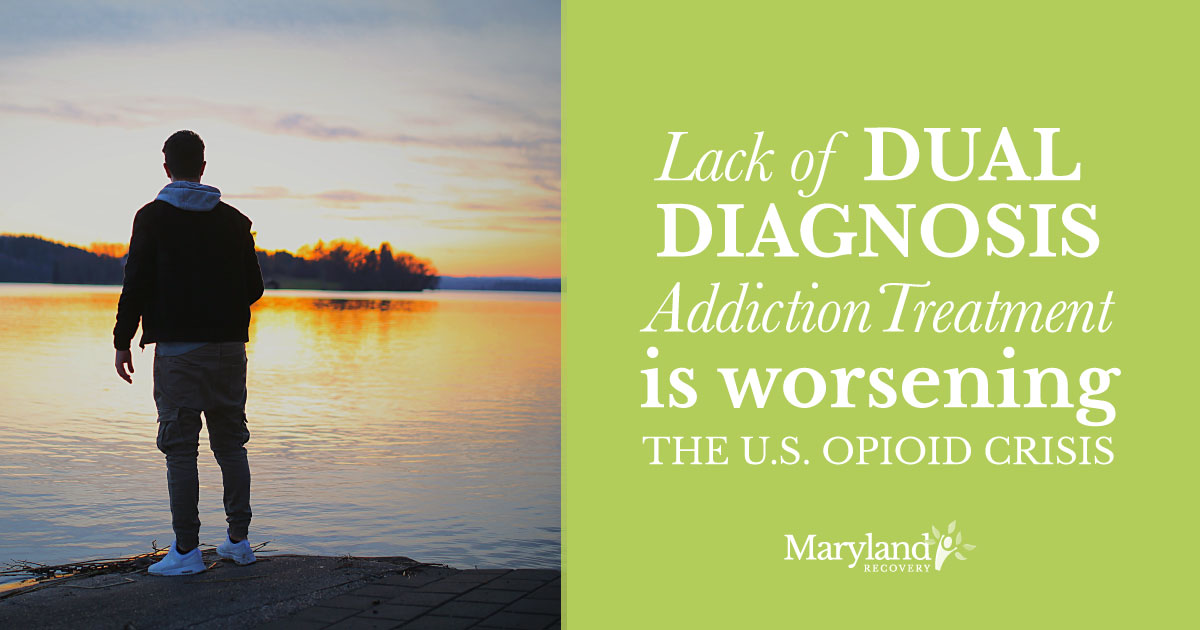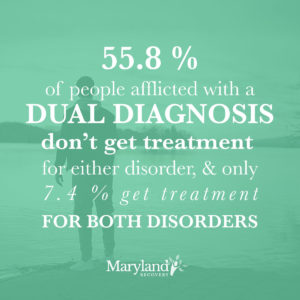
Substance abuse is a widespread issue affecting all demographics in the United States, and some of the most serious cases aren’t receiving appropriate treatment. “Dual diagnosis” refers to a substance abuse problem existing in tandem with a mental health disorder. More than half of all substance abuse cases involve dual diagnosis patients.
Dual diagnosis addiction treatment is more extensive and complex than standard addiction treatment. It addresses the mental health symptoms that can reach extremes when substance abuse develops alongside them.
There are many factors influencing the ongoing opioid crisis in the United States, and a lack of effective dual diagnosis care is a major one. Many people in the U.S. do not have ready access to general addiction treatment services, let alone treatment options that address the underlying mental health issues contributing to substance abuse.
Many people across the U.S. now understand the severity of the opioid crisis in the country, and recognize the need for addiction treatment. However, the opioid crisis remains a major issue despite increased awareness, and won’t slow down until mental health treatment and dual diagnoses cases receive the appropriate attention.
Dual Diagnosis Addiction Treatment
The Substance Abuse and Mental Health Services Administration (SAMSHA) reports that nearly 60 percent of dual diagnosis cases do not receive effective treatment for substance abuse alone. Furthermore, only about 8 percent of dual diagnosis patients receive treatment for both their mental health issues and substance abuse.
This lack of effective treatment options means many people will either continue down destructive path of addiction, or quickly relapse into substance abuse after receiving inadequate treatment. It’s incredibly difficult for a dual diagnosis patient to progress toward complete recovery without mental health treatment. The opioid crisis in America will continue until more people recognize the need for effective dual diagnosis treatment programs.
A Cycle of Addiction
Dual diagnosis is particularly dangerous because a patient’s mental health issues and substance abuse feed one another. A person with a dual diagnosis will self-medicate to alleviate the symptoms of the mental health disorder.
Over time, the person will only feel relief by using his or her drugs of choice, and the drug abuse, in turn, will exacerbate the mental health problem.
How Do You Treat Dual Diagnosis Cases?
The only way to effectively treat a dual diagnosis case is by addressing the mental health problem and the substance abuse simultaneously. A person suffering from dual diagnosis needs to recognize how each issue feeds into the other so he or she can learn to break the cycle of addiction.
Problems with Dual Diagnosis Treatment
 Researchers at the Dartmouth-Hitchcock Medical Center and the University of Michigan report that individuals who suffer from mental health disorders, like depression and anxiety, tend to consume a disproportionate amount of prescription painkillers.
Researchers at the Dartmouth-Hitchcock Medical Center and the University of Michigan report that individuals who suffer from mental health disorders, like depression and anxiety, tend to consume a disproportionate amount of prescription painkillers.
Essentially, the people facing the highest risk of developing substance abuse are consuming more addictive substances than those without mental health issues. This only further affirms the need to treat both mental health and substance abuse issues together.
Not all rehabilitation centers offer comprehensive dual diagnosis treatment. Many substance abuse clinics are perfectly capable of providing robust substance abuse treatment options, but few are properly equipped to handle more complex dual diagnosis cases.
It is essential for dual diagnosis patients to find a substance abuse recovery program and facility that focuses on both sides of the addiction, otherwise the individual will never achieve 100 percent recovery.
Dual Diagnosis Care at Maryland Recovery
At Maryland Recovery, our team understands the importance of treating dual diagnosis cases, and we provide multifaceted treatment that addresses the many needs of patients with co-occurring disorders.
Studies show that about 30 percent of people struggling with a mental health disorder also have substance abuse problems, and we want to provide thorough treatment for patients suffering from both issues.
Dual diagnosis cases may be fueling the ongoing opioid crisis, but driving more awareness about the issue and increasing the accessibility of dual diagnosis treatment are steps in the right direction.
Learn More About Our Dual Diagnosis Treatment
Reviewed by Christopher Schwartfigure MS, LGPC, CAC-AD








